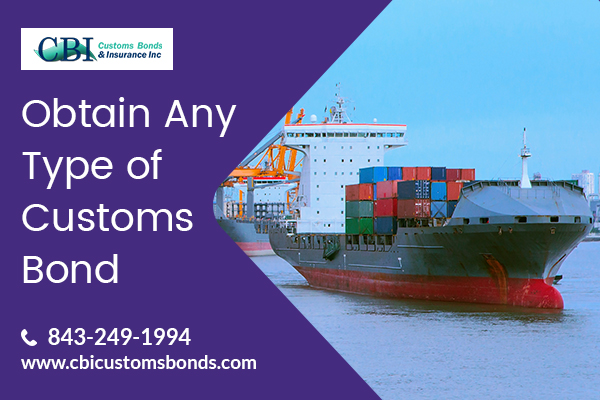When importing merchandise into the United States, importers
are required to obtain the necessary customs
bond. With the establishment of Customs and Border Protection (CBP), it
became a priority for the American government to keep its land safe from
dangerous merchandise. CBP is a border enforcement agency that is responsible
for controlling, regulating, and monitoring the transaction of goods between
the US and other countries. Customs surety bond varies with the type of
activity involved for a transaction and thus it becomes quite complicated for
merchandizers to calculate the right bond amount.
Customs Bond
A 301 customs bond
is a contract between the importer, CBP, and a surety company. The purpose of a
bond is to ensure the payment of duties, fees, and taxes levied on shipment to
the CBP. It also ensures that the shipment made is in compliance with rules and
regulations of CBP and pertinent agencies. The bond conditions, prices,
validity, and method of submission may vary depends on the type of activity,
merchandise, and other factors.
In case the importer fails to produce sufficient bond when
enquired or does not pay the duty and taxes, the surety company has the
obligation to pay the CBP all due to payments on behalf of the principal
(importer). Customs bond is simply a guarantee of financial obligations made by
the importer for a particular transaction. And if it is not paid until a
certain period of time, the CBP can ask for payment from the bond issuing
company.
When do you need a
customs bond?
When you import a cargo that is valued above $2,500, it
becomes subject to formal customs clearance which requires a customs bond and
other documents. There are two options – Single Entry Bond and Continuous Customs Bond. A single
transaction bond as the name suggests is valid only for one transaction while a continuous bond is valid for multiple transactions during a year.
Bond amount
Calculating the bond amount can tricky for you if you’ve
never done it before. The bond amount for a single entry bond must not be less
than the total value of goods plus all the duties, taxes, and fees. A continuous customs bond is 10% of
duties, taxes, and fees paid for the 12 month period. A licensed customs broker
can determine the exact amount of your customs
surety bond. You are recommended to contact experienced brokers or
insurance company to obtain the bond.




Comments
Post a Comment